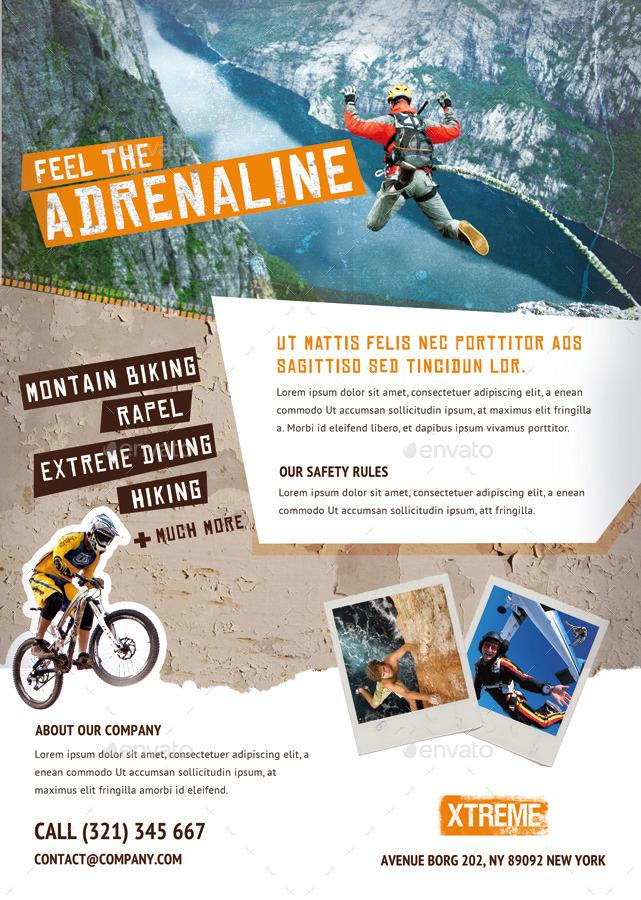In recent years, the exhilarating world of extreme sports has captivated audiences around the globe, drawing attention not only to the athletes who perform these daring feats but also to the brands eager to associate themselves with this high-adrenaline lifestyle. As the popularity of these sports surges, a new and complex ethical landscape emerges, particularly when it comes to the involvement of young athletes in advertising campaigns. While the fusion of youthful energy and extreme sports offers unparalleled marketing potential, it also raises critical questions about the responsibilities of brands, coaches, and parents in ensuring the well-being and fair treatment of these young talents. This article explores the promising yet challenging terrain of extreme sports advertising, highlighting the need for ethical guidelines that balance commercial success with the development and protection of young athletes. By fostering a culture of transparency, support, and empowerment, we can ensure that the next generation of extreme sports stars not only inspires audiences but also thrives in a safe and nurturing environment.
Understanding the Impact of Extreme Sports Advertising on Young Athletes
In today’s visually-driven marketing landscape, extreme sports advertising captures the adventurous spirit of youth, tapping into the adrenaline-fueled passions of young athletes. These ads often depict daring feats and seemingly superhuman abilities, inspiring young athletes to push boundaries. However, it’s essential to navigate this space with a keen awareness of ethical considerations, ensuring that the portrayal of such sports is both responsible and realistic. Advertisers can achieve this by focusing on the following:
- Authenticity: Highlight genuine experiences and skills of young athletes, avoiding exaggerated or potentially dangerous stunts.
- Positive Role Models: Feature athletes who emphasize safety, perseverance, and sportsmanship.
- Diversity and Inclusion: Showcase a wide range of participants, promoting an inclusive environment where everyone feels represented and encouraged.
By adopting these practices, advertisers not only foster a positive and ethical image but also empower young athletes to embrace their sports with confidence and a healthy respect for safety.

Cultivating Ethical Advertising Practices for Youth Engagement
In the world of extreme sports, young athletes often find themselves in the spotlight, representing brands that align with their daring pursuits. It’s crucial to ensure that advertising practices around these athletes are grounded in ethical considerations. Brands must strive to create campaigns that are both engaging and responsible, reflecting the values of authenticity and transparency. By prioritizing the well-being of young athletes, companies can foster a more supportive environment that encourages growth and integrity.
Here are some key principles for brands to consider:
- Transparency: Clearly communicate the nature of endorsements and sponsorships, ensuring young audiences understand the commercial context.
- Authenticity: Collaborate with athletes who genuinely resonate with the brand’s values, creating campaigns that reflect real experiences.
- Empowerment: Encourage young athletes to be involved in the creative process, allowing them to voice their perspectives and ideas.
- Safety: Prioritize the physical and mental well-being of athletes by promoting safe practices and positive role models.
By adhering to these principles, brands can create ethical advertising campaigns that not only capture the excitement of extreme sports but also inspire a new generation of responsible and engaged youth.
Empowering Young Athletes through Responsible Marketing Strategies
In the vibrant world of extreme sports, where adrenaline meets passion, it’s crucial to craft marketing strategies that not only captivate but also uphold ethical standards. Young athletes are not just performers; they are role models whose actions and endorsements influence countless aspiring sports enthusiasts. Responsible marketing plays a pivotal role in shaping their image and guiding their audience towards healthy and positive lifestyle choices. Here are some key strategies:
- Authenticity over Glamour: Highlight the genuine journey of young athletes, showcasing their dedication, challenges, and triumphs rather than an unrealistic lifestyle.
- Age-Appropriate Messaging: Ensure that promotional content is suitable for the athlete’s age group, avoiding mature themes that might not align with their audience.
- Educational Content: Integrate informative elements that educate young audiences about safety, discipline, and the importance of perseverance in sports.
- Inclusive Representation: Celebrate diversity and inclusivity by representing athletes from various backgrounds and abilities, fostering a sense of belonging among all fans.
By adopting these strategies, brands can empower young athletes to become not only champions in their sports but also ambassadors of positive change, inspiring the next generation with integrity and respect.
Building a Future of Integrity and Success in Extreme Sports Promotions
In the vibrant world of extreme sports, young athletes stand at the forefront, embodying the spirit of adventure and pushing the boundaries of human potential. As these rising stars captivate audiences worldwide, the ethics surrounding their promotion become crucial. Advertising to youth must prioritize the well-being and development of these athletes, ensuring that they are not just seen as marketing tools but as individuals with dreams and aspirations. Here are some guiding principles to uphold integrity in this dynamic field:
- Transparency: Clearly communicate the terms of any promotional deals, ensuring young athletes and their guardians fully understand the expectations and commitments involved.
- Education: Provide resources and training to help young athletes navigate the complexities of sponsorships and endorsements responsibly.
- Health and Safety: Prioritize the physical and mental well-being of athletes by advocating for safe practices and discouraging dangerous stunts solely for promotional purposes.
- Authenticity: Encourage athletes to maintain their unique voices and values, allowing them to represent brands that align with their personal beliefs and passions.
By embedding these principles in promotional strategies, the industry can cultivate a landscape where young athletes thrive, fostering a future where integrity and success go hand in hand.










